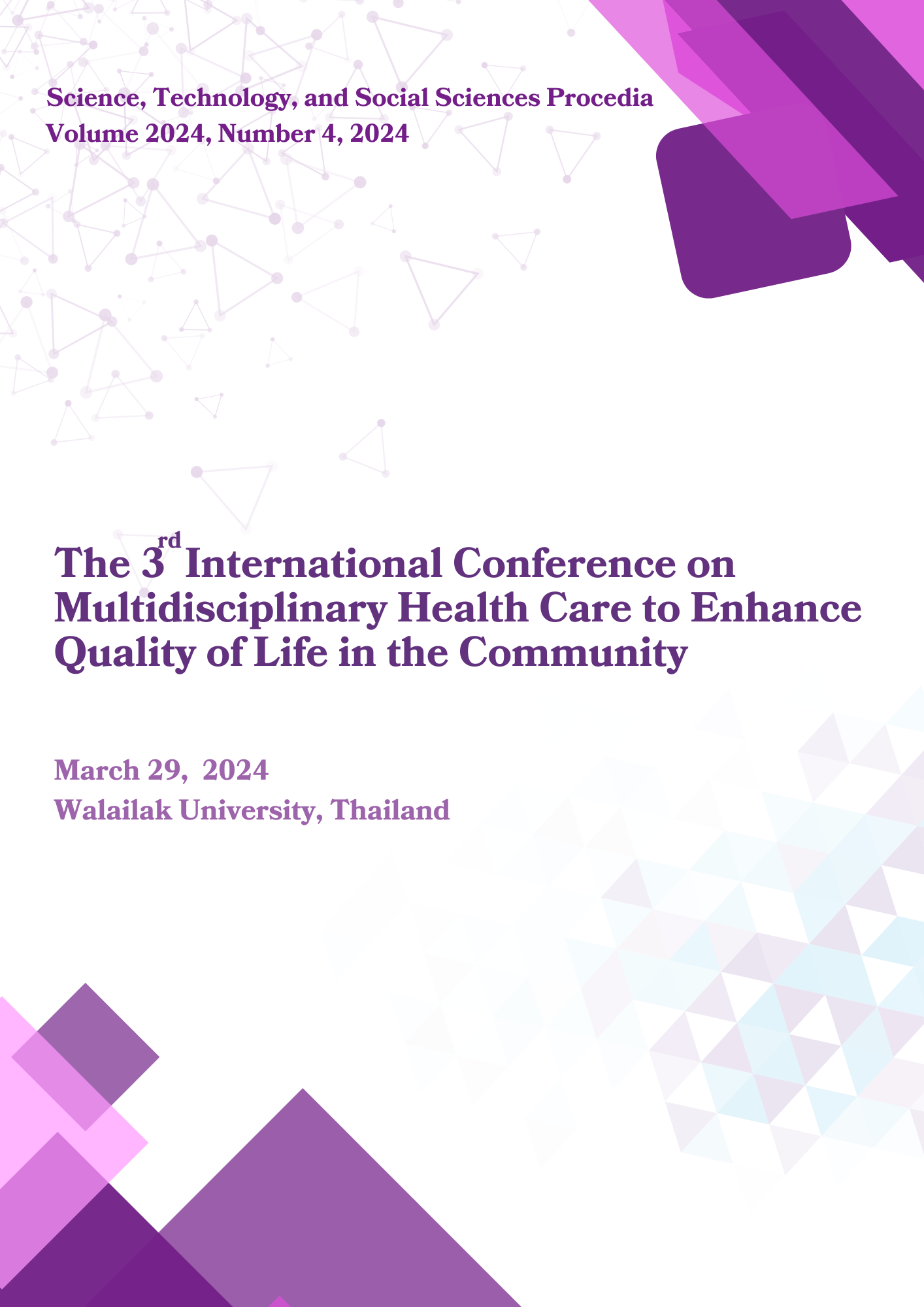Factors Associated with Incidence of Long-Term COVID-19 Symptoms Among Adults in Nakhon Si Thammarat Province, Thailand
Keywords:
Long-term COVID-19 symptoms, Factors, Incidence, AdultsAbstract
Introduction: Long-term COVID has recovered in patients from the infected Coronavirus 2019, but there are still symptoms of problems that can occur four weeks to 3 months after infection in adults more than children.
Research objective: To study the incidence of Long-term COVID-19, the situation of symptoms and problems caused by long-term COVID-19, and factors associated with the incidence of long-term COVID-19 symptoms after Coronavirus 2019 infection among adults in Nakhon Si Thammarat Province.
Methodology: This research is a retrospective study. The sample of people aged 20 - 59 with RT-CPR or ATK positive was 260. The researchers collected data by using a questionnaire about personal data, health status, vaccination, history of infection with Coronavirus 2019, quarantine place, and symptoms of problems after infection with Coronavirus 2019. Statistical analysis included descriptive statistics, Chi-square tests, and binary logistic regression.
Results: The study revealed that the incidence of long-term COVID-19 symptoms was 30.8 %. The most prevalent clinical symptoms were cough (82.5 %), weakness/fatigue (67.5 %), headache/dizziness (53.8 %), hair loss (36.3 %), and myalgia/bone pain (31.3 %). The factors associated with the incidence of long-term COVID-19 symptoms after the Coronavirus 2019 infection were sex, age, underlying diseases, BMI, vaccination, and quarantine place, significant (p < 0.05).
Conclusions: According to the study results, patients with long COVID-19 symptoms after Coronavirus 2019 in males aged > 35 years old, with underlying diseases and obesity, received the vaccine 1 - 2 times and in-home quarantine. Therefore, healthcare providers should provide surveillance, screening, and monitoring of symptoms and advise on observing these patients’ symptoms after the coronavirus 2019.

